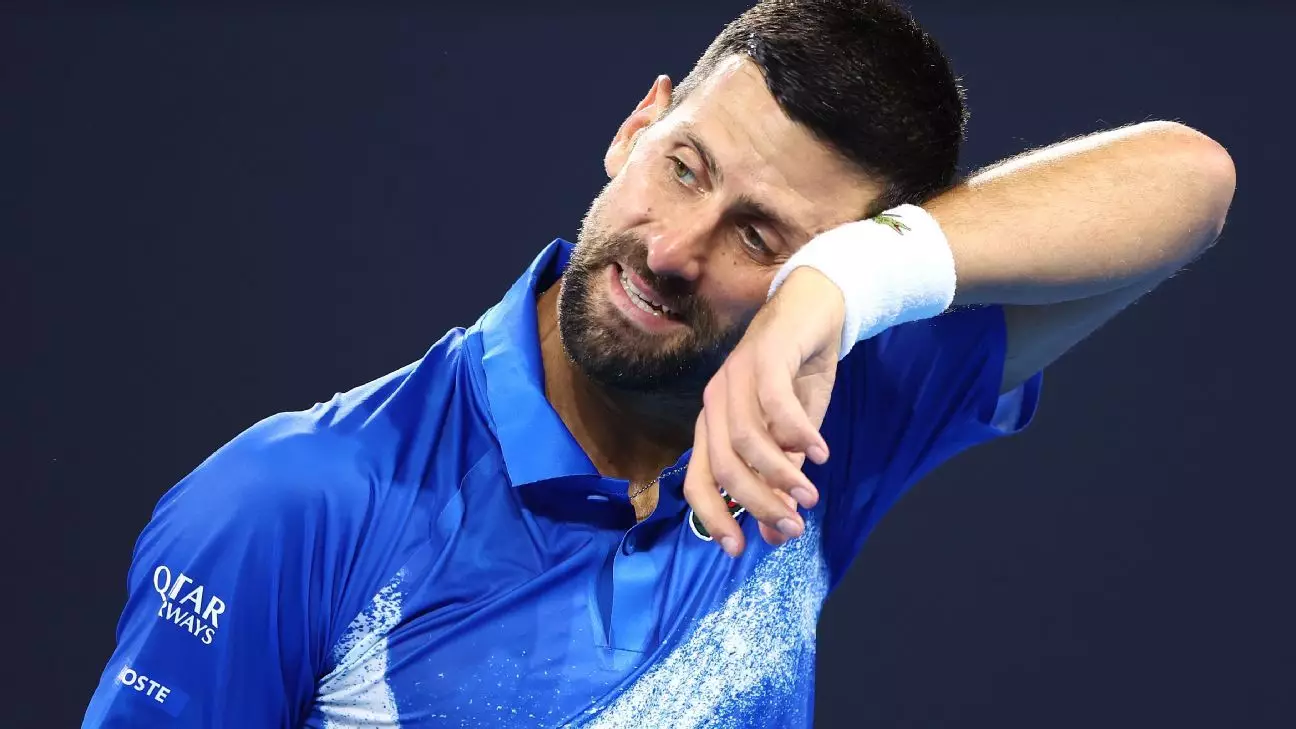Novak Djokovic, the Serbian tennis prodigy renowned for his extraordinary achievements, has openly articulated the emotional distress he faces upon returning to Melbourne, Australia. This sentiment echoes from a notable moment in sports history three years prior when Djokovic found himself enmeshed in a legal controversy over COVID-19 regulations, leading to his deportation on the eve of one of tennis’s most prestigious tournaments, the Australian Open. The event was not merely a sports setback; it was a profound personal crisis that cast a long shadow over his career and mental well-being.
In 2022, Djokovic’s refusal to adhere to vaccination mandates resulted in severe repercussions—most notably, his inability to defend the title he had earned the previous year. The legal proceedings that ensued kept him confined in a hotel for five days, as he grappled with the complexities of Australian immigration laws. Ultimately, his visa was revoked, and the tournament continued without one of its most celebrated champions, ultimately won by Rafael Nadal. This episode is far more than a mere anecdote for Djokovic; it represents a harrowing dislocation from a world where he has historically found solace and success.
Despite a triumphant return to the Australian Open the following year, where he claimed victory amidst less stringent COVID regulations, Djokovic has revealed that his experiences linger. He describes how the past trauma resurfaces during passport checks, creating a sense of unease each time he arrives in Australia. This emotional residue manifests as an anxiety rooted in a fear of repetition—what if he is once again subject to the scrutiny and chaos he faced before? His comments to Melbourne’s Herald Sun highlight this tension, revealing a dichotomy between his triumph on the court and the underlying uncertainty he feels off it.
Djokovic noted that his subsequent victory in Australia was one of the most emotional of his career, emphasizing the significant psychological toll the prior year’s events had on him. Although he successfully navigated the challenges of the 2023 tournament, the scars from the previous encounter with immigration officials and legal obstacles remain. Djokovic’s assertion that he holds no grudges reflects a mature understanding of his circumstances, yet his vulnerability surfaces as he recounts the distress of re-entering a place once filled with promise and now intertwined with misfortune.
As the upcoming Australian Open approaches, set to commence on January 12, Djokovic stands poised to add to his impressive legacy as the player with the most men’s singles titles in the tournament’s history. Yet, one cannot ignore the psychological complexity surrounding his participation—a mixture of anticipation mingled with apprehension. This narrative not only highlights Djokovic’s resilience but also serves as a reminder of how external pressures can impact the mental landscape of even the most accomplished athletes. As he steps onto the court, the question remains: will he be able to fully transcend the past, or will its shadows continue to influence his journey?

